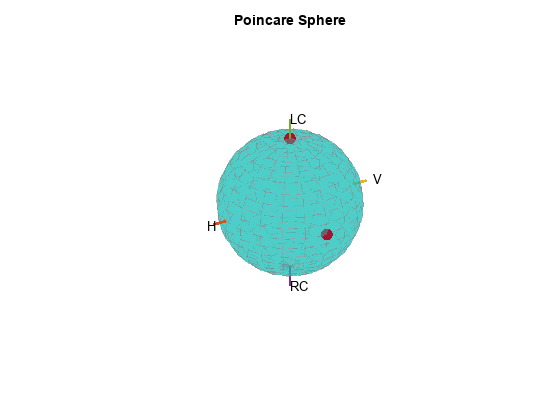stokes
Stokes parameters of polarized field
Syntax
Description
G = stokes(fv)G of
a polarized field or set of fields specified in fv.
The field should be expressed in terms of linear polarization components.
The expression of a field in terms of a two-row vector of linear
polarization components is called the Jones vector formalism.
Examples
Input Arguments
Output Arguments
References
[1] Mott, H., Antennas for Radar and Communications, John Wiley & Sons, 1992.
[2] Jackson, J.D. , Classical Electrodynamics, 3rd Edition, John Wiley & Sons, 1998, pp. 299–302.
[3] Born, M. and E. Wolf, Principles of Optics, 7th Edition, Cambridge: Cambridge University Press, 1999, pp 25–32.
Extended Capabilities
Version History
Introduced in R2013a
